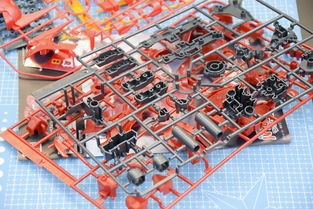Flame cutting, a widely used method in metal fabrication, requires precise programming to ensure efficient and accurate cutting. Daihen, a leading provider of cuttingedge flame cutting systems, offers advanced solutions that integrate sophisticated programming capabilities. Let's delve into the intricacies of programming Daihen flame cutting systems to optimize performance and productivity.
Daihen flame cutting systems are equipped with stateoftheart technology to facilitate various cutting operations, including oxyfuel and plasma cutting. These systems typically consist of a CNC controller, cutting torches, gas supply units, and motion control components.
1.
Begin by defining the geometry of the part to be cut. This includes specifying dimensions, angles, and any intricate shapes required. Most Daihen systems support CAD/CAM integration, allowing seamless transfer of geometry data.
2.
Utilize nesting algorithms to optimize material usage and minimize waste. Efficient nesting ensures maximum productivity and costeffectiveness. Daihen systems often offer builtin nesting functionalities or compatibility with thirdparty nesting software.
3.
Set cutting parameters such as gas flow rates, torch speed, pierce delay, and cutting height according to the material type, thickness, and desired quality. Daihen flame cutting systems provide intuitive interfaces for parameter adjustment, allowing operators to finetune settings for optimal results.
4.
Implement appropriate leadin and leadout techniques to enhance cut quality and reduce dross formation. Daihen systems offer flexibility in defining leadin/out positions and angles, enabling smooth transitions during cutting operations.
5.
Optimize cutting paths to minimize travel time and reduce unnecessary torch movements. Daihen flame cutting systems employ advanced algorithms for path optimization, resulting in faster cycle times and improved efficiency.

6.
Ensure proper preheating of the material before piercing to facilitate smooth penetration and minimize distortion. Daihen systems feature precise control over preheating parameters, allowing for consistent pierce performance across various materials and thicknesses.
7.
Implement dynamic nesting capabilities to adapt cutting strategies based on realtime feedback. Daihen flame cutting systems equipped with dynamic nesting can adjust cutting parameters onthefly to accommodate material variations and optimize cut quality.
8.
Integrate Daihen flame cutting systems with Enterprise Resource Planning (ERP) or Manufacturing Execution Systems (MES) for seamless data exchange and production scheduling. This integration streamlines workflow management and enhances overall manufacturing efficiency.
1.
Regularly calibrate and maintain the cutting system to ensure accurate performance. Proper maintenance extends equipment lifespan and minimizes downtime.
2.
Provide comprehensive training to operators on programming techniques and system operation. Welltrained operators can maximize productivity and troubleshoot potential issues effectively.
3.
Implement quality assurance protocols to verify cut accuracy and adherence to specifications. Periodic inspection of cut parts helps identify and address any deviations promptly.
4.
Foster a culture of continuous improvement by soliciting feedback from operators and actively seeking opportunities to enhance programming methodologies. Regularly updating software and incorporating latest advancements ensures competitiveness in the market.
Programming Daihen flame cutting systems requires meticulous attention to detail and proficiency in utilizing advanced functionalities. By mastering key programming aspects and adhering to best practices, manufacturers can harness the full potential of Daihen systems to achieve superior cut quality, increased throughput, and overall operational excellence.
文章已关闭评论!
2024-11-26 09:52:14
2024-11-26 09:51:06
2024-11-26 09:49:43
2024-11-26 09:48:33
2024-11-26 09:47:18
2024-11-26 09:46:10
2024-11-26 09:44:46
2024-11-26 09:43:32